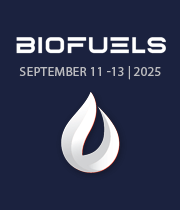HYBRID EVENT: You can participate in person at Valencia, Spain or Virtually from your home or work.
Process Design
Process Design
Nonrenewable fuels are widely employed to supply the growing demand for energy around the world. However, these fuels are expensive as a result of rising demand and dwindling availability. The existing methodology for establishing sustainable biofuel processes and supply chains is outdated. Rather than selecting fuel paths that minimize environmental consequences across the life cycle, life cycle concepts are frequently retroactively included in the design process, resulting in incremental environmental improvement. Furthermore, creating sustainable biofuel supply chains necessitates taking into account numerous spatial and temporal scales of economic, environmental, and social aspects.
- Process Systems Engineering
- Early-Stage Design and Analysis of Biorefinery Networks
- Process Design and Economics
- Process Design for Conversion of Biomass to Biofuels
Committee Members

Susan Newman
Integrated Lipid Biofuels, United States
Magnus Stahl
Karlstad University, Sweden
David Galan Madruga
Carlos III Health Institute, Spain Biofuels 2025 Speakers

Tirath Raj
University of Illinois Urbana Chaimpaign, United States
Jorge Antonio Hilbert
Energy and Environmental Consulting Services, Argentina
Mehrez Karima
Unilasalle Rennes - School Trades De L'environnement, France



Title : Combustion performances of advanced cooking stoves using woody and herbaceous pellets as fuel
Magnus Stahl, Karlstad University, Sweden
Title : Human impact on natural environment and its implications
Dai Yeun Jeong, Asia Climate Change Education Center, Korea, Republic of
Title : Revolutionizing bioplastics with yeast cell factories
Susan Newman, Integrated Lipid Biofuels, United States
Title : Quality variation in market biofuels and the effect on tailpipe emissions
Nick Molden, Emissions Analytics, United Kingdom
Title : Multi biofuel complex An intrinsic concept for adopting circular economy
Arindam Chakraborty, Mectech Process Engineers Pvt. Ltd., India
Title : Ultra modern patented technology to convert agriwaste MSW slaughter house effluent lake waste high cod distillery spent wash to 99pure renewable hythane (hydrogen and methane)
Atul Saxena, Growdiesel Ventures Limited, India